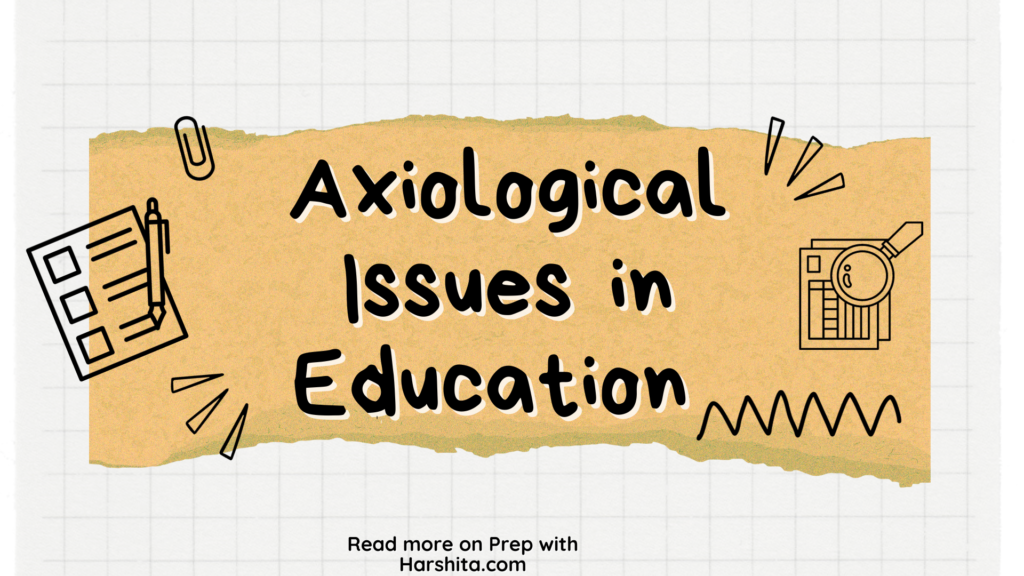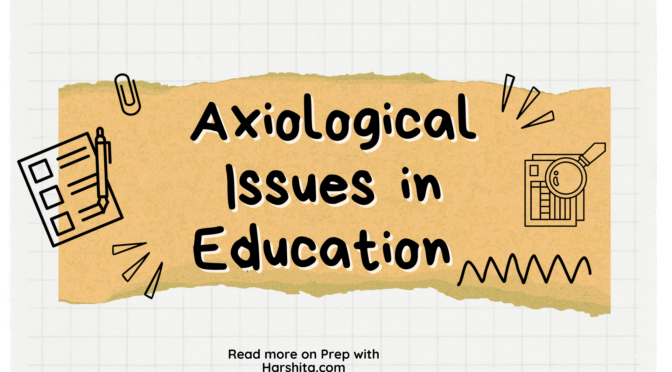Axiological issues in education refer to the philosophical study of values, ethics, and their role in the educational process. Values play a crucial role in shaping the goals and outcomes of education, and they can encompass a wide range of principles and ideals.
Role of Peace
Peace is one such value, and it plays a significant role in education, along with other values. Here are some key points to consider regarding the role of peace and other values in education:
- Promoting Peace as a Core Value: Peace is often considered a fundamental value in education. Schools and educational institutions can promote peace by fostering a culture of tolerance, understanding, and conflict resolution. Educators can teach students about the importance of peaceful coexistence, non-violence, and the resolution of conflicts through dialogue.
- Cultural and Contextual Values: Values in education are not universally defined; they can vary across cultures and contexts. Educators must be sensitive to the cultural and contextual values of their students and communities. This requires a balanced approach that respects diverse perspectives while also upholding shared values such as respect for human rights and dignity.
- Ethical Values: Beyond peace, education should also instill ethical values such as honesty, integrity, empathy, and responsibility. These values form the basis for moral decision-making and ethical behavior. They help students become responsible and compassionate individuals who contribute positively to society.
- Citizenship Education: Many educational systems aim to prepare students to be responsible citizens. This involves teaching values related to civic engagement, democracy, and social justice. Educators may encourage students to understand their roles in society and work towards creating a more just and equitable world.
- Environmental Values: Environmental values, such as sustainability and ecological responsibility, have gained increasing importance in education. Educators can help students develop an understanding of the interconnectedness of all life forms and the need to protect and preserve the environment for future generations.
- Critical Thinking and Values: Education should also foster critical thinking skills, enabling students to examine and evaluate values, beliefs, and ethical dilemmas. This empowers students to make informed decisions about their values and the values promoted in society.
- Balancing Conflicting Values: In some cases, values may conflict with one another. For example, the value of individual freedom may conflict with the value of community safety. In such situations, education can help students navigate these conflicts, make informed choices, and engage in constructive dialogue.
- Role of Educators: Educators play a critical role in modeling and transmitting values to students. They should be well-prepared to engage in discussions about values, provide guidance, and create a safe space for students to explore and express their own values.
- Assessment and Evaluation: It can be challenging to assess and evaluate the impact of values education. While standardized tests may measure academic knowledge, assessing the development of values often requires more qualitative methods, such as observation, reflection, and self-assessment.
Also Read: Universal Knowledge and Contestation Knowledge

Also Visit: Prep with Harshita


Thanku for the notes. Please make more notes related to m.ed .wbuttepa